Professor Virgil Suarez considers poetry the antidote to all that ails the human spirit. Robert O. Lawton Distinguished Professor David Kirby sees poetry as a lens that allows him to see the world more clearly. And for graduate student Hera Naguib, poetry leverages dreaming and questioning and opens a window into our shared humanity.
Those talented poets and others from the Florida State University Department of English shared their poems with the FSU community as a way to celebrate National Poetry Month, which continues through April.
Launched by the Academy of American Poets in April 1996, National Poetry Month reminds us that poets have an integral role to play in our culture and that poetry matters.
Enjoy for yourself:
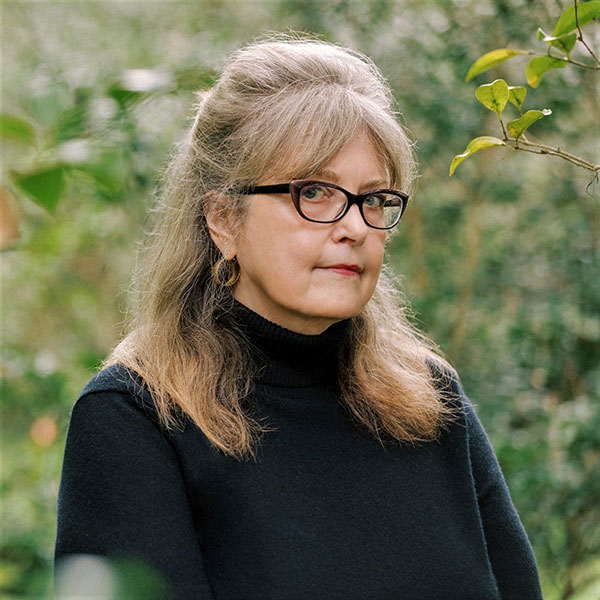 Barbara Hamby, Senior Lecturer and Distinguished University Scholar
Barbara Hamby, Senior Lecturer and Distinguished University Scholar
An FSU alumna, Hamby has authored six books of poetry and was a 2010 Guggenheim fellow in poetry. Her poems have appeared in The New Yorker, Poetry, The Paris Review, Yale Review, American Poetry Review, and many other many other magazines. Her work was also featured in the Best American Poetry 2000, 2009 and 2010.
“I love poetry because it helps us to understand how to be our best selves,” Hamby said. “Even at its grittiest, poetry is striving for transcendence and beauty.”
This poem was originally published in the print edition of the Oct. 7, 2019, issue of The New Yorker.
Ode On Words For Parties (American Edition)
Why do we have so many words for parties, a slew
of them once you start looking: shindig, bash,
meet-and-greets, raves, blowouts, barbecues,
and more tepid functions, receptions, luncheons, and do’s
of all kinds, though, let’s face it, most people have no clue
about how to throw a party, like the friend who was complaining
because her husband wanted to have lots of food at the brunch
they were planning, but she knew people didn’t go
to parties to eat, and Marsha and I had to break it to her
that brunch was the combination of two meals,
so her guests were expecting to eat double, and you can’t believe
the shock on her face, but her husband put out a great spread
and everyone ate and talked, though we’ve all been to those parties
with the bowl of dead chips and the onion dip
that looks like cat vomit on the driveway, actually not that good,
but my sister throws a fabulous party, because she’s a great cook
and has an army of wine bottles that never stops marching,
and her garden is verdant, and she has a pool,
which some people end up in at the end of the night. What
would be the word for that kind of party—Vinocoolpool
Party? And the other one might be a Kittydip Party. And guests!
They can ruin a party, too. Think of the Music Nazis
who make their way through the world with their one-upmanship,
and your collection of Van Morrison and Jimi Hendrix
is so uncool compared with the Mud Stumps and Echo Park,
but only before they caved and became famous
and were no longer cool. Then there are the couples
who are glued at the hip, twins conjoined
by church and state, or the bloviators, or the drunks who can turn
a party into a Godzilla-stomps-Tokyo apocalypse,
like the time the guy with the Ponderosa belt buckle slid chest first
in a dance move and put a gouge three feet long
in my hardwood floor, and I hadn’t even invited him; he was
my hairdresser’s friend. That party was over. I wanted
everyone out of my house. Or what about the people who live
in the middle of nowhere, and you know
that on the way home you’ll end up in Hades or a ditch,
if you’re lucky, what would you call those?
Suburban-Hell Parties? Hansel-and-Gretel-Lost-Weekend Parties?
I often try to talk my husband into pulling over
so we don’t crash, but he reminds me that we’re just setting
ourselves up for the serial killers who roam lonesome
highways looking for poets, and what would you call
that concatenation of events? Zodiac-After-Party-Stab-Fest?
Post-Bash-Head-Bash? You can see that when I’m not
going to parties I’m watching too many true-crime shows,
which make you mistrust your fellow human beings
in the most basic way, and yet we continue to throw parties,
which is an interesting choice of verbs, and English
is full of them—throw a party, pitch a fit, pitch a tent, pitch
a no-hitter, pitch in, pitch-black, and that’s what the road
is like now, and I’d give anything to be at that Kittydip Party
two blocks from my house, with the Einstein Brains
blaring on the sound system so I can’t hear the guy talking
about how he prepares petri dishes for his research
or the woman who is describing an airline-ticket fiasco
that wouldn’t even be interesting if it had happened
to me, but I guess that’s life—a continuum between darkness
and mala folla, a Spanish phrase that describes an indifference
so profound it can’t be bothered with scorn,
but I remember one of the best parties ever was a wine tasting
put together by an Australian father and son
and by the end everyone was dancing to “Tutti Frutti”
and screaming drunk and in love with the world and I danced
with a roly-poly lawyer named Booter, whom I never saw
again, and the hangover the next day was a small price to pay
for that crazy mix of Little Richard and Cabernet,
and there was food, yeah, but who remembers what.
 James Kimbrell, Professor
James Kimbrell, Professor
Kimbrell’s poems, reviews and translations have appeared in anthologies such as Best American Poetry and The Pushcart Prize, and in magazines such as Poetry, Field, Fence, Ploughshares and The Nation. He is the author of “The Gatehouse Heaven,” “My Psychic,” and “Smote,” all from Sarabande Books.
“Poetry is important because it gives us a language for experiences and impressions that might otherwise remain unexpressed, thus adding to the available stock of what we can actually communicate; without it, our language, our reality, remains within pre-existing limits where, to quote William Blake, we stand still unable to do other than repeat the same dull round over again,’” he says.
“The Guitar Boat” comes from Kimbrell’s third collection of poetry, “Smote.” He wrote the poem in 2009, the year his father passed away. In this context, Kimbrell wrote the poem to capture the way that grief is not always linear but “comes in waves like a recurring dream with its own music and timetable.”
The Guitar Boat
“You know after death, you have to go by yourself.”
–-Blind Willy Johnson
When I brush the strings with my sleeves, pulling the oars back,
I hear the lagoon music of a blues dream in which I ferry
my father’s ashes, though the song I sing is no funeral song,
and I carry his ashes only
when the oars part the air
inside this dream I have of Venice,
asleep in Mississippi.
When I brush the strings with my sleeves, I carry my father
to meet my father, that he might hear the music the way
that ships, clouds, mirrors hear the music. When I brush
the strings with my sleeves, it is
my father returning to this dream
in which I ferry toward him, and away,
singing, laughing, always
disappearing, always music. When I cry, I cry backwards
in the direction of my rowing, tears like crystal minnows
leaping back into my eyes. I know, I know, rowing his ashes,
clouds move in the mirror when
the mirror moves. I will meet you
back home, ferry you
across the long water. There is
no balm like the blue sleep of water. This music, my father,
tears like crystal minnows swimming off ahead of me,
salt smell of the lagoon. Goodbye strings, goodbye song,
guitar that is a ferry
for the child of ashes,
music of street vendors
from the widening shore.
 David Kirby, Robert O. Lawton Distinguished Professor
David Kirby, Robert O. Lawton Distinguished Professor
Kirby has received many honors for his work, including fellowships from the Guggenheim Foundation and the National Endowment for the Arts. His work appears frequently in volumes of Best American Poetry and Pushcart Prize. Kirby is the author of numerous books, including “The House on Boulevard St.: New and Selected Poems,” which was a finalist for the 2007 National Book Award in poetry.
“Poetry is a lens,” he says. “It helps me see the world more clearly.”
Poetry is Full of Uncertainty These Days and For Good Reason
Jazz pianist George Shearing was
waiting to cross a busy intersection when
a man with a white cane tapped him
on the shoulder and asked if Shearing
could help him get to the other side.
Shearing himself was blind from birth,
but as he tells it, he wondered, “What
could I do? I thought a moment, then
took him across. It was the biggest
thrill of my life!” Friend, we need
each other. Give me your arm.
Let’s take one step and then another.
Let us go line by line, stanza by stanza,
poem by poem—these poems of mine
or yours; it doesn’t matter. Something
better awaits us, something much better.
Arundhati Roy says, “Another world
is not only possible, she is on her way.
On a quiet day, I can hear her
breathing.” Friend, let’s go there.
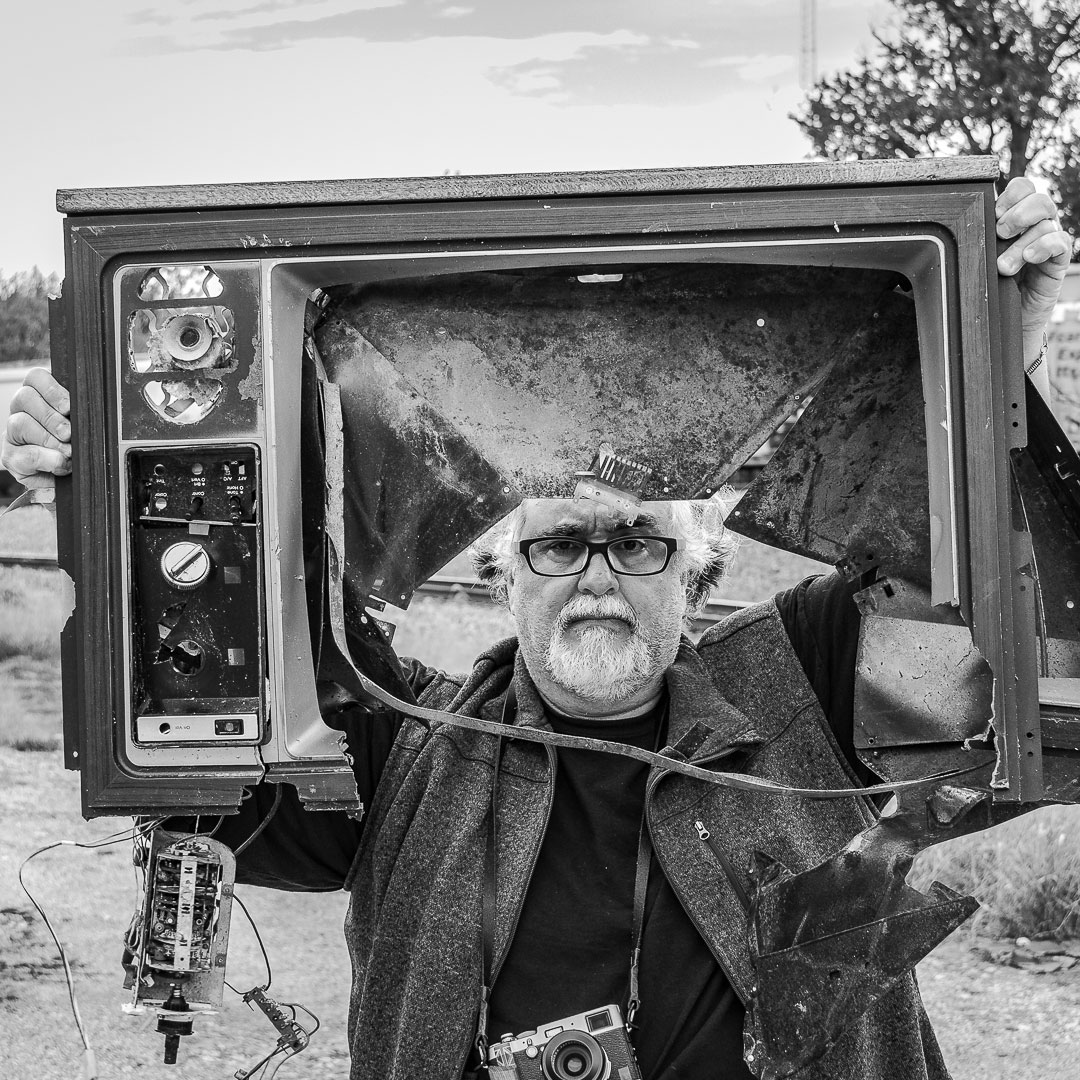 Virgil Suarez, Professor
Virgil Suarez, Professor
Poet, essayist, novelist and short story writer, Suarez is the author or co-author of more than 15 books of poetry and prose. His work has appeared in The Kenyon Review, The Southern Review, The New England Review, Poetry London, Poetry Wales, Poetry New Zealand, Imago (Australia), The Toronto Review (Canada), The Barcelona Review (Spain), Ploughshares and many others nationally and internationally.
“Without the arts and poetry in particular, we would have no story-telling tradition,” he says. “We would not have much-needed empathy and humanity. We would be diminished as a species that thrives on words and communication. To be a poet is to be the antidote to all that ails the human spirit. Poetry has saved me in my own personal journey. My work is a witness not only to what I have lived through, but also my family who for generations have been immigrants.”
La Florida
Lugubrious days pass with the amplitude of manatees,
Hibiscus unfold their smiling vortex to confused bees,
somewhere near Turkey Point a crocodile grows a foot
by the day, tourists mistake the big ones for logs,
anhingas play Jesus on the Spanish moss-riddled branches
of oaks and junipers, crucified in the sun. Feral Quaker
parrots build nests high up in the banyan trees. Orchids,
capuchin monkeys loosed from an animal distributor
warehouse, memories of the bearded lady and the lizard
man, retired now in Palatka, holding court in the shade
of a parasol by their trailer. Russian midges, rockets
shot into the eye of the moon, this magic of fireflies
zapping their phosphorescence in the night air, jasmine,
gardenia—somewhere a man barbecues 4-inch-thick steaks
in a thing called the Green Egg. A firefighter, a player
of handball. When his son visits once a year from Vegas
he asks when will he return to Tampa, his home. Who isn’t
lured by so much sun, heat? The permanence of weather—
or by the mystery of sun showers when the sky opens up
and pelts the earth with a momentary lapse of crying.
Right now, somewhere in the Everglades, a fish jumps
out of the water and into the mouth of an alligator.
Nobody’s there to witness it, but it happens again and again.
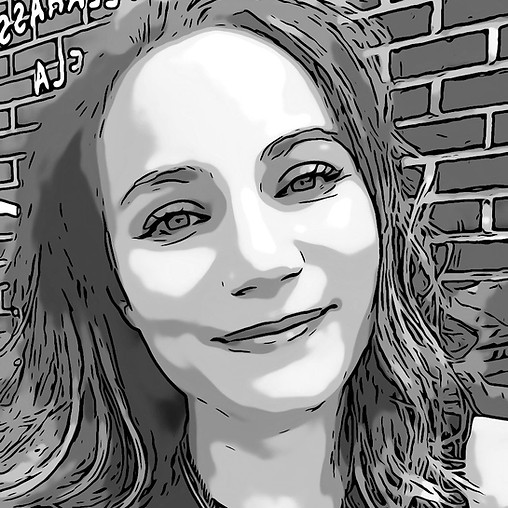 Natalie Tombasco, graduate student
Natalie Tombasco, graduate student
Tombasco is pursuing a Ph.D. in creative writing and serves as the interviews editor of the Southeast Review, a national literary magazine housed in FSU’s English Department. Her work can be found in Copper Nickel, Fairy Tale Review, Yalobusha Review, The Rumpus, Southern Indiana Review, Poet Lore and VIDA Review, among other publications. She has a chapbook titled “Collective Inventions” (CutBank, 2021).
“Poetry affords us the improvisational space between the sleeping and waking worlds to find some solace,” she says.
Dream Vision of Frank O’Hara
it is 4:40 and I’m drenched in moonstone, sequins, fishnets, and general getting-out
of-bedness at the corner of 11th Avenue and 30th hoping for something hum-colored.
get in, you say, we’re looking for goldenrod! your broken nose points toward the
gilded
remnants of Saturday. It’s the night like I love it all cruisy and nelly and we toast to
our only
pain being champagne, how life is a series of bad haircuts and witticisms, a long drag
on a short cigarette. jujubes! Finnegans Wake! honey, turn me into viscous paint: de
Kooning, demolition, technicolor taboos. that’s so dada how the oil leak, no! my
eyeliner, resembles a Kline. I’m sort of gutter rat: folding a slice and spilling the
hottubs
of pepperoni onto the sidewalk but trust me, I can do a time-step: be your Ginger.
offer bland remarks like Mae. you force feed me bleu cheese olives, blintzes, reels of
celluloid to hurry along my refinement. I ask why you never read me your poems and
you say it’s like inhaling your own flatulence. just like that. be a little discreet in your
desire,
disorder, dying. you fill my coupe with restlessness and myselves split, undulate. one
of
me buys the Strega. one of me is in a freak accident. one of me is skin-shedding on
the
High Line. I can’t even enjoy a blade of afterlife unless I know there’s a subway
handy.
did you ever imagine your bohemian freight trains would be my railroad ecology,
yellow foxtail
and hawkweed? must Manhattan be fleeting, fabricated, a gold-leafed dream? by now
my cheeks hurt—heart eyes, no-moss mind—but we can’t stop brooding about our
mothers, those useful thorns. suddenly the skyline is brushed across with a silk
salmon
scarf and you reach for it like the Sistine Chapel but of course the Staten Island Ferry
shows and do I have to go when we’re having so much fun
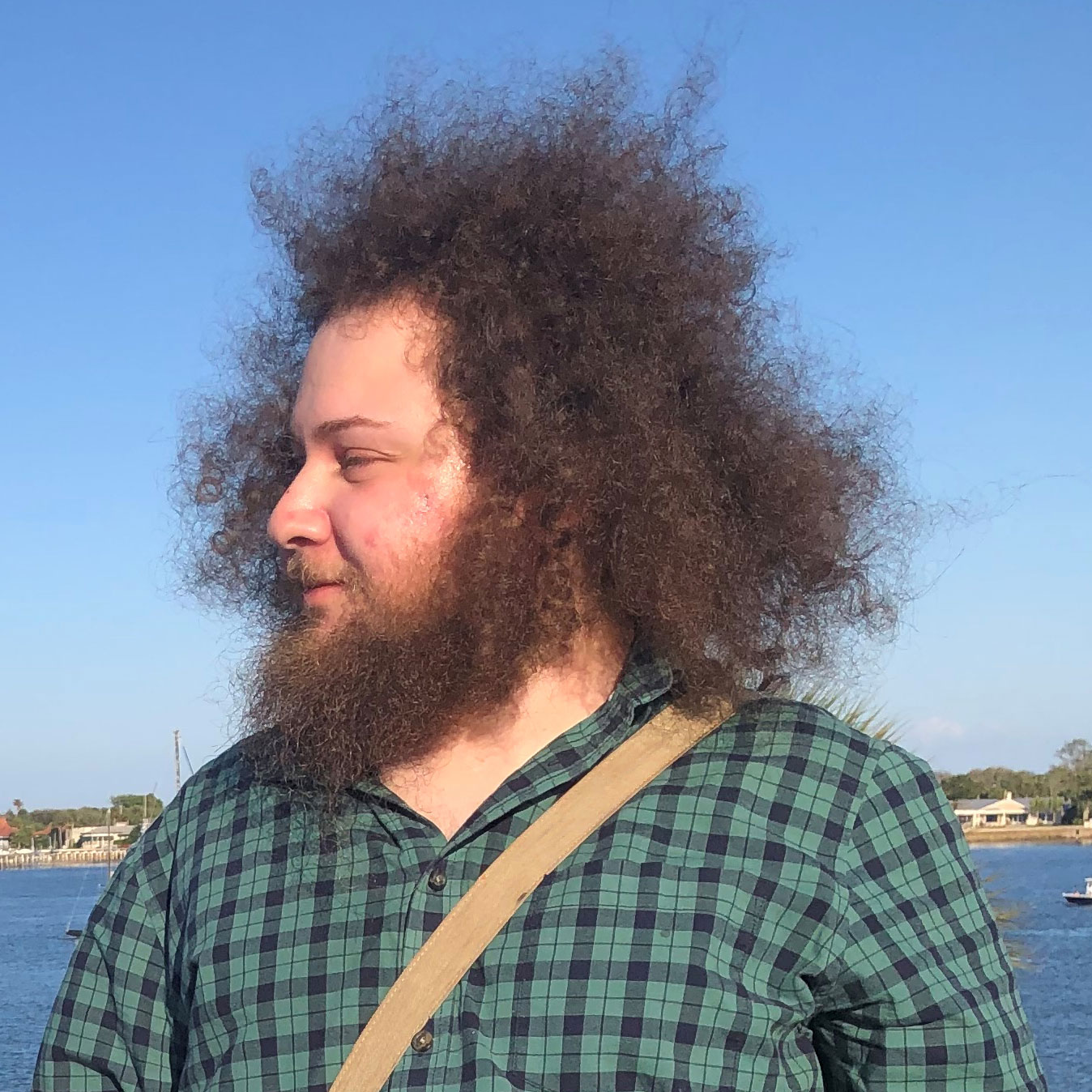
Daniel Galef, graduate student
Galef is a first-year MFA student and associate poetry editor of Able Muse. His poems have been published in Measure, The Lyric, First Things and Philosophy Now, among other publications. He also writes nonfiction, humor and plays. His story “Break Blow Burn,” published last year in Juked, was awarded a spot in the 2020 Best Small Fictions anthology.
The following poem is a part of a sonnet series, “Imaginary Sonnets,” recently a finalist for the Richard Wilbur Award.
4:00 a.m. Poem
Why is it that the smallest hours are longest
when all is still and silent, and the mind
is loud, and its pronouncements are the strongest,
most passionate, and of the cruellest kind?
Those lowest-numbered hours, by darkness muffled,
like lifetimes pass—and leave the world changed
like lifetimes will. Familiar thoughts are shuffled,
in new and alien patterns re-arranged.
The days and decades flutter by like sparrows
through a hall and out the other side,
but instants, frozen, like the flight of arrows,
stand swift—stick still—suspended—petrified—
as if the narrow neck of time’s glass narrows
before the final grain has danced and died.
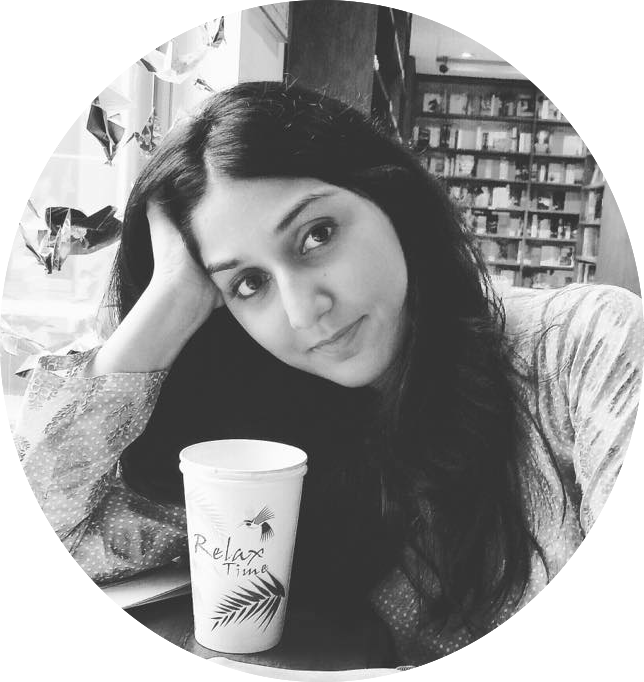 Hera Naguib, graduate student
Hera Naguib, graduate student
Naguib is a Pakistani writer who was raised in Jeddah, Saudi Arabia, and Toronto. She holds fellowships and recognition from the Fulbright Scholarship Program, VIDA: Women in Literary Arts, and The American Academy of Poets. She currently serves as contributing poetry editor at River Styx.
“Poetry is important because it excavates and brings to light the overlooked, the unnamed, and the unknown,” she says. “It leverages dreaming and questioning and thus opens a window into our shared humanity.”
QUARANTINE
Tonight, I halt to prior ghosts
that well up again, funerary as the sirens
that shrill through the tracheal alleys.
When I tell F., he says, this is America—
what you leave for her claims you back.
Yes, the fountain veil loping
over the ribbed Red Sea I wanted
to shiver to a whisper as a girl.
Yes, little caskets of Himalayan
pine nuts I thumbed each sulfurous winter.
It’s true I’ve buried all the cities I’ve called home
in some lacquered erstwhile ache.
How easily I’ve worn
the sky’s feigned amnesia & throbbed
tedious, as the landscape outside
where each evening, the same rangy cat
licks the fungal pool in the balding grass.
What, truly, would I give for repose: to belong?
To breathe inconspicuous as a dab
on a box Mother clamps over the still humid
dinner across that eastern hemisphere
where night slinks into every
familiar katora and spoon hollow?
Everywhere, contagion shreds being to a minimal question.
The answer ferments, unspoken &
hung over the open bracket of sleep.
On the news, grounded airplanes
heckle me with their snouts.
The earth teethes coffins en masse.
For days, the mind, a fugitive,
seeks to slink from its atlas of disquiet.
For days, I touch no one.
I let hours thaw on my nape
and outstare a ceiling stain
till it sips from my affliction.
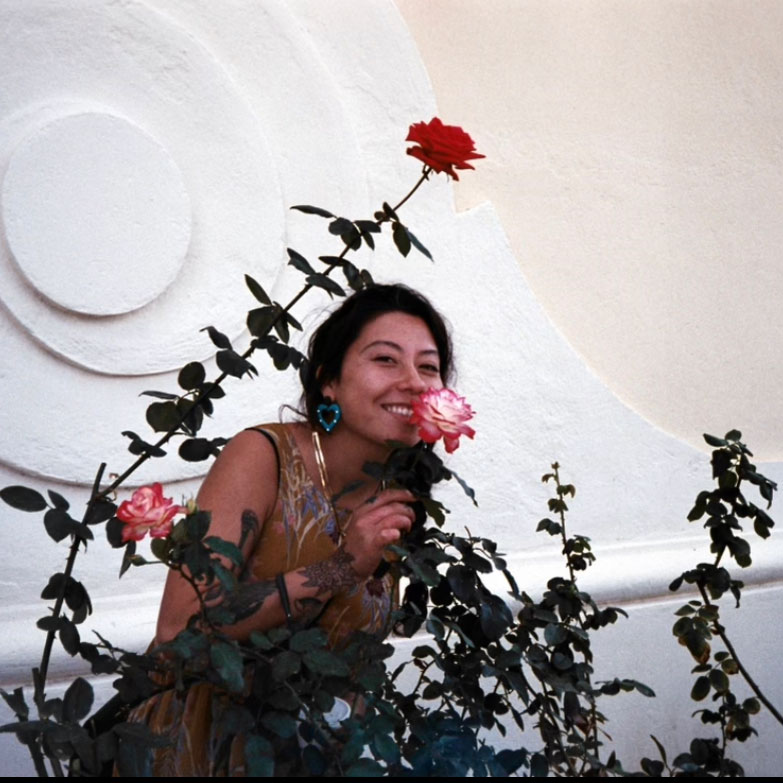 Aimee Seu, graduate student
Aimee Seu, graduate student
Seu is pursuing a Ph.D. in poetry at Florida State after earning her master’s degree in poetry from the University of Virginia. Her first collection of poetry, “Velvet Hounds,” won the Akron Poetry Prize in 2020 and was published in February 2022. She is from Philadelphia.
This poem was originally published as a runner-up for the Philadelphia Stories’ poetry Prize.
RICH FRIEND
Hello sounded like a new language
from her mouth. Intergalactic sparkle
of passionfruit lip gloss. Stuck her finger
through the threads where my thighs
rubbing together, wore away my jeans.
New clothes much? she smirked. Her mother looked me up
and down in the doorway, worried. I was mesmerized
by the kitchen pantry. Gleam of hardwood.
In framed photographs: Gwen in black velvet riding helmet.
Gwen at art camp. Gwen on stage with other porcelain doll
children, tip-toe in pale tulle. Moon lowered
behind her on its rope. There was a time I would’ve been jealous
but, seventeen now, all I wanted was to obliterate
the parentless house of my body, glow white
under blacklights, blast my hair straight
on the highway, pierce any flesh I could pinch. To meet crushes
late night at the gate of her cul-de-sac. Gwen, in neon makeup
and Bjorkian rags, denim that was purposefully and expensively
ripped or frayed or bleached. I learned
glamorous damage, felt royal
in her clothes. And she gave generously—
purple bomber jacket with fox fur hood,
white corduroy bellbottoms, rainbow holographic
wallet with the silver unicorn zipper.
Even once, an antique locket, her grandparents’
portraits inside, frowning at me, a stranger.
Odd that she gave it away. Odd that I wore it.
We read how Yoko won Lennon’s heart & we began
writing yes all over the walls. Across the dashboard, in the bathroom stalls
at school. Yes, yes. Our chant. I’d see one of her yes’s carved
into a desk when we were classes apart
and burn with our girlish devotion.
Yes to the tongue-ringed music video skater
rolling a blunt in slow-motion, yes all over Johnny’s face
in her Cry-Baby poster, yes, on repeat, to the song that still transports me.
To the indulgently foamed push-up bras, ordering $80 of food
on Mother’s stolen credit card, just to throw it all up—
what we once called fun. To the roof where we sat
to watch night collapse over everything.
We were a spectacle
in her father’s convertible, trading
seats so she could ride shotgun and pack the bowl.
Her chair tilted all the way back as I drove,
sound system vibrating the leather.
Gwen, I see you clearer now: her fascination with boys
she called troubled, who were banned from the mall,
who her father called shitheads, whose fathers punched
or burned them with cigarettes. The romancing of terrible wounds.
Gwen thought the work boots I duct taped together
when I was kicked out in the rain
were charming.
I still remember the mesh canopy of her princess bed,
like the room a willow makes inside.
Our den of hoarded cigarettes, bottles her parents
didn’t notice disappear, hard candy, gel pens,
Adderall, packs of gum. On vacation with her family
in Bermuda, we tore pages out of the hotel bible
& burned them on the beach, dared God to curse us.
Set off fireworks and ran hand-in-hand
when the cops came. Our LSD eyes engorged
on the Grand Canyon: so willfully red
beneath the rawhide sun. Or Colorado, us half asleep in hot springs
in the snow. I just wanted to go everywhere with her
and she wanted to bring me, like a treasured stuffed animal
or a groupie, so easily-amazed. What did her parents see—
a parasite teen coaching their daughter toward risk?
Or a mangy stray their big-hearted only-child
brought home—De-flea me, make me presentable!
One night I asked, lying on the floor beside her bed,
both of us spun out on her mother’s benzos,
Which of us do you think will die first?
Definitely you, she said.
Definitely. I agreed
and we fell asleep laughing.




